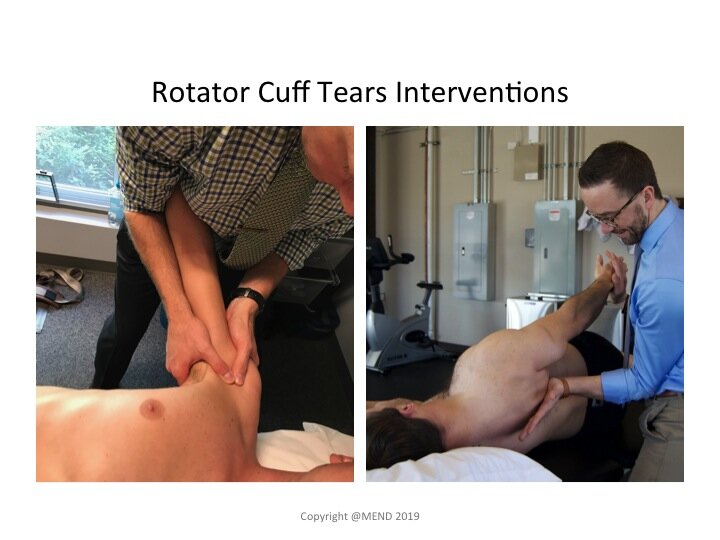Rotator cuff tears are a common injury in middle to older aged adults. Tears can be gradual or degenerative in nature associated prior injury (tendinopathy) or acute and traumatic from a fall or sudden trauma to the shoulder. The severity of the injury including tear depth and size, as well as, the number of tears in the rotator cuff helps determine the appropriate medical treatment. Injuries of greater tear size and an increased number of tendons involved are more likely to require surgical interventions, but another important factor is the patient’s function.
Many tears are found on MRI and ultrasound imaging in patients without pain and these patients function very well in spite of the tear. Surrounding muscles in the rotator cuff, shoulder, and shoulder blade help provide additional stability to the shoulder joint in the presence of the injury. It is not surprising, in light of these beneficial compensations, research has shown no difference at 1 and 2 year follow up between patients randomized to either rotator cuff surgery or Physical Therapy. A recent study showed a similar conclusion in patients with acute, traumatic rotator cuff tears.
Ranebo and colleagues conducted a randomized, controlled trial in the Journal of Shoulder and Elbow Surgery (2020). Patients with a median tear size of 9.7 mm(range 4-21 mm) were randomized to either arthroscopic surgery or Physical Therapy and followed for 1 year. Patients under subjective histories, clinical examination, and MRI follow ups at each time point. Authors reported no significant clinical outcomes between the patients with rotator cuff tear who were treated surgically or conservatively with Physical Therapy. This study is consistent with prior research reporting no difference in long term outcomes between surgery and Physical Therapy for degenerative tears or acute, traumatic tears. Based on the available evidence patients are advised to pursue Physical Therapy as a first line treatment for rotator cuff injury.
Click Here to schedule your next appointment with the experts at MEND

